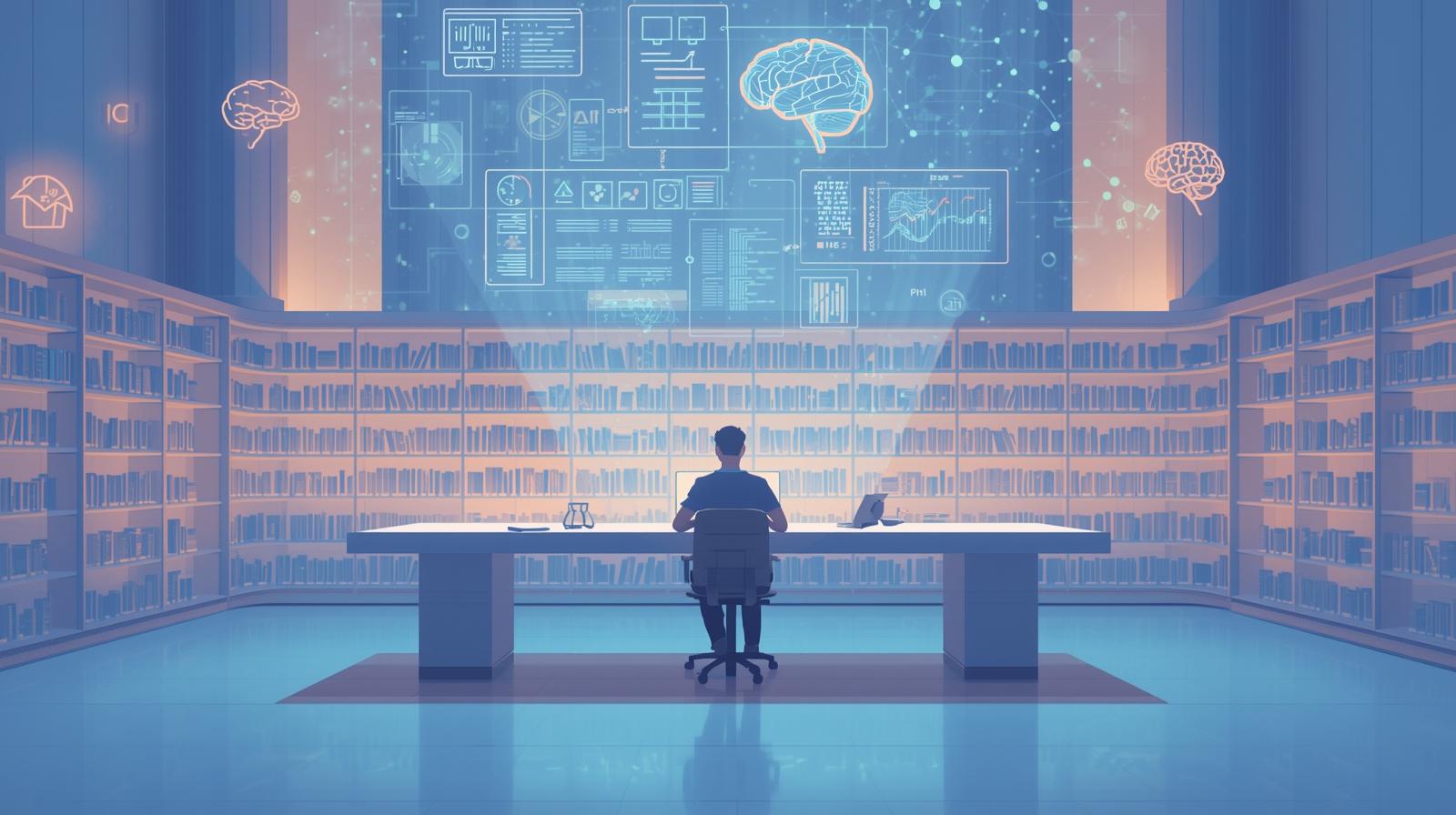
Bad Study Habits That Kill Your Productivity: 7 Practical Fixes
Feeling like you’re spending hours studying but getting nowhere? You’re not alone. Many students fall into common study traps that kill productivity and lead to frustration, burnout, and poor grades. The good news is that these habits are easily fixable, especially with the right tools.
In this guide, we’ll expose the seven most damaging study habits and provide practical, actionable solutions to overcome them. We’ll also show you how to leverage StudyWizardry’s powerful AI features to not only break these bad habits but also build a smarter, more efficient learning system.
The 7 Costly Study Mistakes and How to Correct Them
1. The Habit: Passive Highlighting & Re-reading
This is the illusion of competence. You read a text, highlight vast portions in yellow, and re-read it, feeling familiar with the content. However, this does little for long-term memory.
Why It’s Bad: It creates a false sense of mastery without actively engaging your brain. You recognize the information but can’t recall or apply it in an exam.
The Fix: Embrace Active Recall.
Instead of just re-reading, force your brain to retrieve information. Close the book and ask yourself: “What were the key points of that chapter?”
How StudyWizardry Helps:
- Quiz/Test Generator: Instantly turn your notes or a textbook chapter into a practice test. This forces you to actively retrieve information, strengthening neural pathways.
- Flashcards: The core of active recall. Create digital flashcards with a question on one side and the answer on the other. StudyWizardry’s algorithm will then schedule reviews at optimal intervals.
2. The Habit: Cramming
Pulling all-nighters might feel productive, but it’s one of the least effective ways to learn.
Why It’s Bad: Cramming stores information in your short-term memory, leading to rapid forgetting. It also increases stress, ruins sleep, and harms cognitive function.
The Fix: Implement Spaced Repetition.
This technique involves reviewing information at increasing intervals over time. It’s the scientific way to hack your brain’s “forgetting curve.”
How StudyWizardry Helps:
-
AI Study Planner: This is your ultimate weapon against cramming. The planner uses spaced repetition principles to automatically schedule review sessions for your topics. Just input your exam date, and it creates a smart, sustainable study plan.
-
Flashcards: Our flashcard system has built-in spaced repetition (like the Leitner method), ensuring you review concepts right before you’re about to forget them.
3. The Habit: Multitasking
Switching between your textbook, Instagram, and messages feels efficient, but it shatters your focus.
Why It’s Bad: “Task-switching” has a cognitive cost. Every time you switch, your brain needs time to re-focus, drastically reducing your learning depth and efficiency.

The Fix: Practice Monotasking with Timed Sessions.
Commit to one task for a set period without any distractions.
How StudyWizardry Helps:
-
AI Study Planner (Study Alarms & Focus Timer): Use the built-in study alarms and timer to implement the Pomodoro Technique—25 minutes of focused study followed by a 5-minute break. This builds discipline and makes long sessions manageable.
4. The Habit: Having No Clear Plan
Sitting down to “study biology” is too vague. Without a clear plan, you’ll waste time deciding what to do next and likely avoid difficult topics.
Why It’s Bad: It leads to unbalanced studying, where you review what you already know and neglect your weaker areas.
The Fix: Create a Structured Study Schedule.
A plan tells you what to study, for how long, and when to review it.
How StudyWizardry Helps:
-
AI Study Planner: This is the heart of our app. It does the planning for you. Based on your subjects, goals, and deadlines, it generates a personalized study roadmap with daily tasks and review sessions, complete with progress reports to keep you motivated.
5. The Habit: Consuming Information Without Synthesizing
Just watching a video or reading a chapter isn’t enough. Learning happens when you process, connect, and summarize information in your own words.

Why It’s Bad: Passive consumption leads to shallow understanding. You won’t be able to explain concepts simply or apply them to new problems.
The Fix: Summarize and Synthesize.
After a learning session, write a summary without looking at the source material. Or, try the Feynman Technique: explain the concept as if to a complete beginner.
How StudyWizardry Helps:
-
AI Note Maker & PDF & Video Summarizer: These are your synthesis power tools. Use the AI Note Maker to quickly organize lecture points. Paste a dense PDF or link a long video into the Summarizer to get a concise overview of the key takeaways, which you can then use to create your own summaries.
6. The Habit: Neglecting Your Wellness
Sacrificing sleep, exercise, and healthy eating for more study time is counterproductive.
Why It’s Bad: Your brain is a physical organ. Lack of sleep impairs memory consolidation and focus. Poor nutrition and no exercise reduce cognitive energy and increase anxiety.
The Fix: Schedule Self-Care Like an Exam.
Treat your wellness as a non-negotiable part of your academic success.
Many students don’t realize that their brain’s performance is directly fueled by their physical health. For a deep dive into how this connection works and actionable strategies to optimize it, read our dedicated article, Fuel Your Brain: The Unbeatable Link Between Sleep, Nutrition, and Higher Grades. It breaks down the science of how sleep solidifies memories and how the right nutrition enhances cognitive function, turning your health into your greatest academic asset.
How StudyWizardry Helps:
-
AI Study Planner (Smart Planning): The planner is designed to prevent burnout. It helps you create a balanced schedule that includes breaks, meals, and free time, promoting sustainable study habits.
7. The Habit: Studying in a Distracting Environment
Trying to study in a noisy, cluttered, or interruptive environment is a recipe for low concentration.
Why It’s Bad: Your brain has to constantly fight off distractions, leaving less mental energy for the actual learning.
The Fix: Curate Your Study Space.
Find a quiet, clean, and dedicated space for studying. Put your phone on silent or in another room.
How StudyWizardry Helps:
While we can’t clean your room, the StudyWizardry app provides a digital distraction-free environment. With all your tools—planner, notes, flashcards, quizzer—in one place, you minimize the need to switch to other, more distracting apps.
Conclusion: From Bad Habits to Smart Learning
Breaking bad study habits is less about willpower and more about building a better system. By replacing passive learning with active recall, chaos with a smart plan, and cramming with spaced repetition, you can transform your productivity.
StudyWizardry is designed to be that system. It integrates proven learning science into an easy-to-use platform that guides your entire study process. Don’t just study harder; study smarter.
Research suggests it can take anywhere from 18 to 254 days to form a new habit, with an average of about 66 days. The key is consistency. Using an app like StudyWizardry helps by automating the new, good habits (like scheduling reviews), making the transition easier and faster.
Absolutely. The AI Study Planner isn't just a calendar; it's an intelligent system based on Spaced Repetition and cognitive load theory. It calculates the optimal time to review material to move it from your short-term to long-term memory, preventing cramming and ensuring you spend your time on what you need most.
Yes! StudyWizardry is designed to be subject-agnostic. Whether you're studying history, biology, mathematics, or law, the core features—Flashcards, Quiz Generator, AI Note Maker, and Summarizer—are adaptable to any type of content. The Advanced Math Solver is a specialized tool for STEM subjects.




